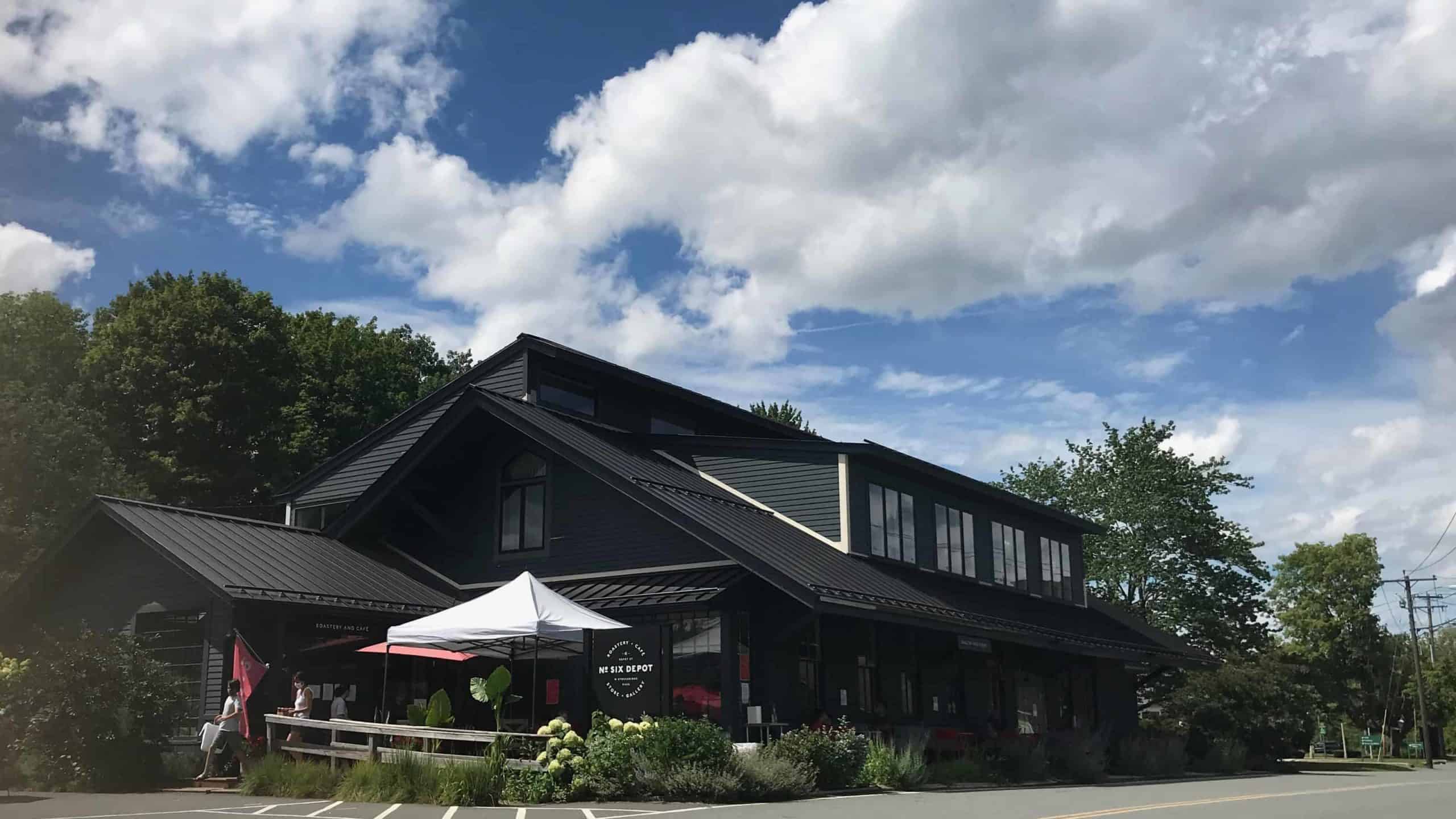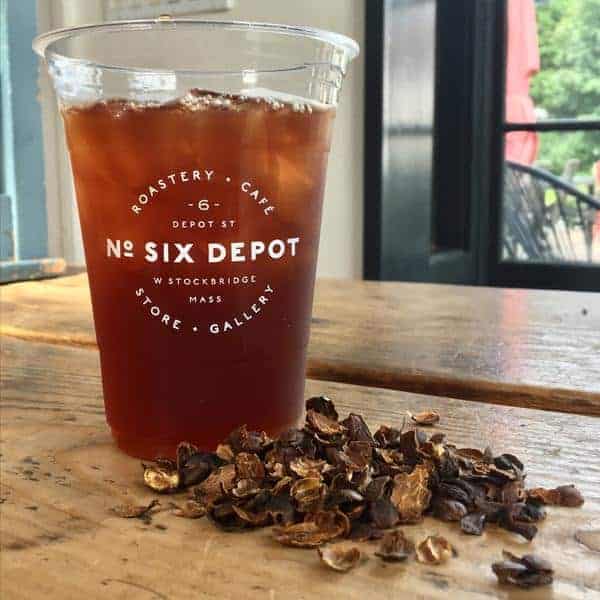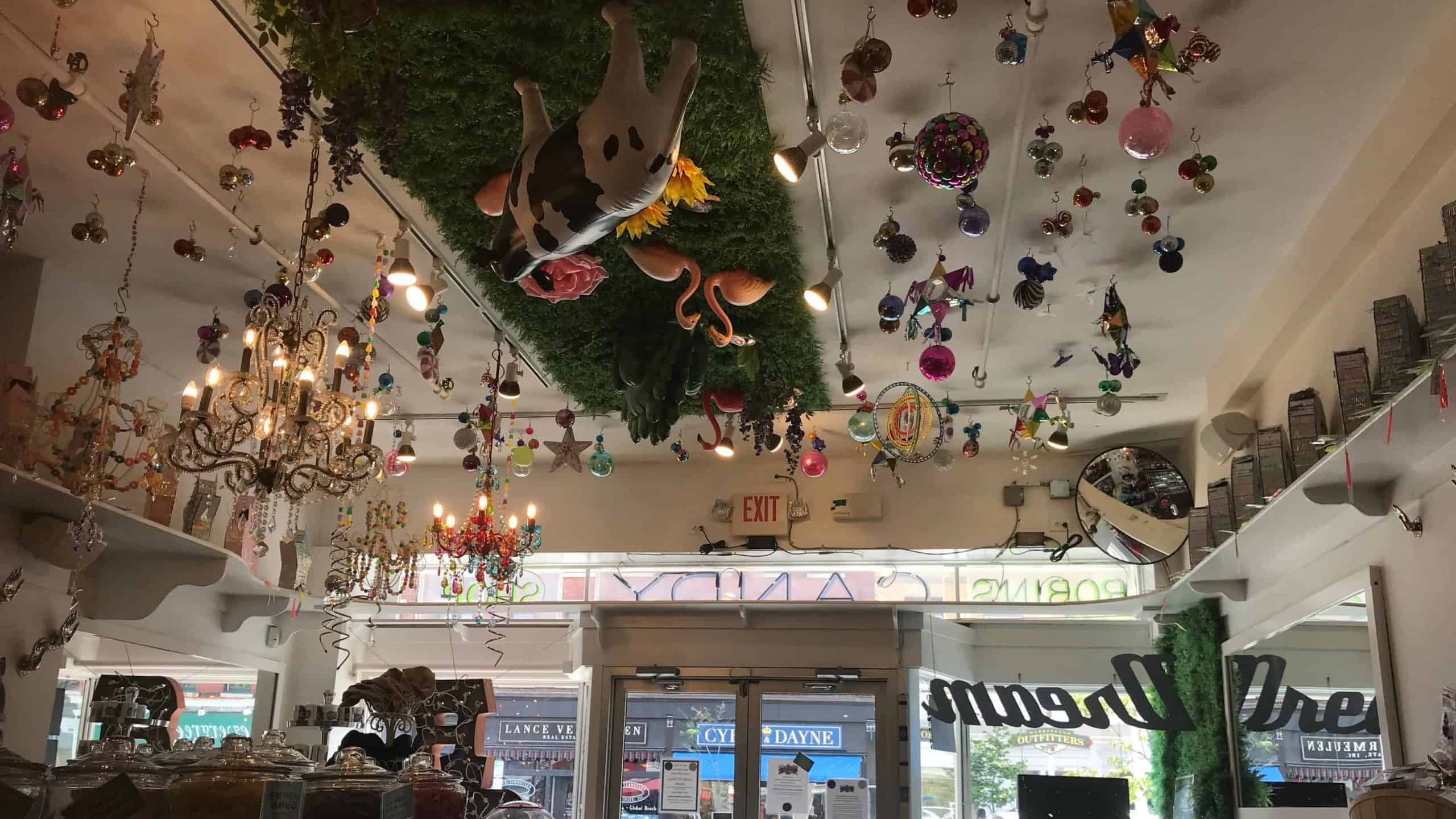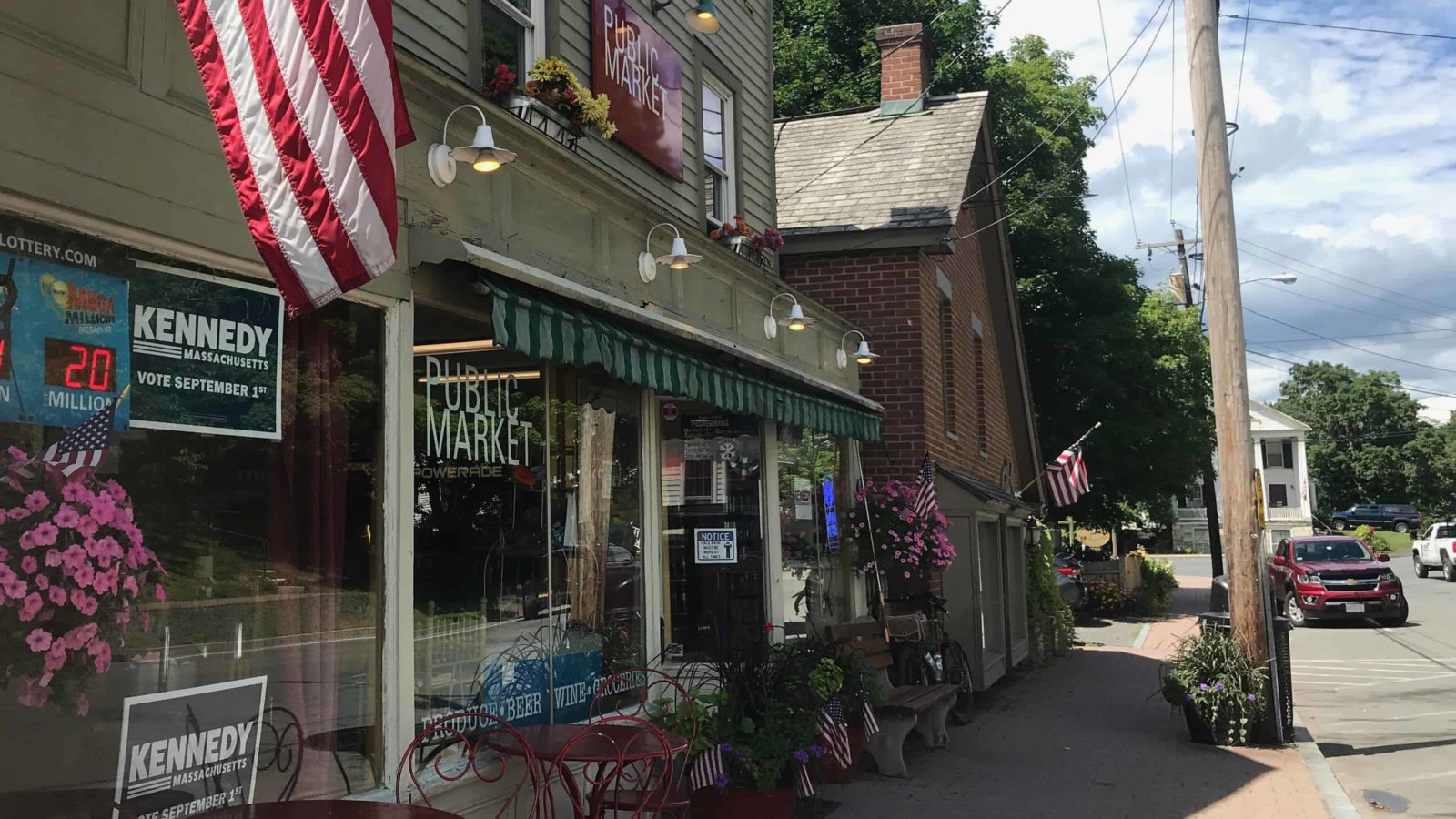In a normal summer, I would be a counselor at URJ Crane Lake Camp, and right about now, my friends and I would be walking into West Stockbridge on our hour-off for a muffin and iced-tea from No. Six Depot Roastery and Café or a grilled sandwich from the Public Market.
Due to Covid-19, Massachusetts restaurants were take-out-only until the end of June and only recently started allowing customers to eat outdoors, and many museums and cultural venues didn’t reopen until July after three months of closure. Almost all theaters are still closed, except for a select few that are having outdoor performances.
These closures have added to the strain on an economy already massively shifting in Covid-19, as businesses, schools and colleges have closed, travel has slowed and unemployment has risen from 5 percent in 2019 to 16 percent in June of 2020.
In past years, rates of tourism in Berkshire County have been on the rise. In 2018, tourism brought in over $460 million to Berkshire county. The rates of total economic impact of tourism in the Berkshires have steadily increased since 2009, growing from around $200 million in 2009 to $827 million in 2017. But this summer, local businesses owners have noticed a significant drop in the usual tourism and a change in their traffic, both in-person and online.
Summer camps across the state have also taken a massive hit, since their main season of business has been cancelled. Crane Lake, along with every other sleepaway camp in Massachusetts, is closed for the summer, and campers, camp staff and faculty have not been the only ones affected — local businesses in towns surrounding these summer camps have also had a drop in summer revenue.
These businesses not only have to adapt to comply with new health and safety regulations, but are simultaneously dealing with a drop in business due to lower rates of tourism and the closures of cultural venues and summer camps across the Berkshires.
Effects of camp closures
“The business that [camp families and staff] bring in a normal summer is immeasurable,” said Owner of the West Stockbridge Public Market Tim Walsh. “I get about 60 percent of my business from the camp.”
Public Market sits on the small town’s Main Street and serves as a sandwich counter and convenience store. The market serves hot premade meals as well as freshly pressed paninis, wraps and cold sandwiches. As the town is in walking distance from Crane Lake, it’s typical for camp counselors to stop by the market on their hours or days off from June through August. Over the years, the relationship between Public Market and Crane Lake has grown so strong that the market now serves a specialty sandwich called the Crane Lake Cutlet.
“It’s huge,” Walsh said of the camp’s effect on his business. “I hire more staff just to keep up with the kids and counselors and families that come in from the camp.”
In a typical summer, Crane Lake Camp is home to around 350 campers, and the camp usually has around 600 people every summer when you add up all the campers, staff and faculty. The population of the town of West Stockbridge is just under 1,300, so an added 600 people over the summer makes a big difference for local businesses.
No. Six Depot is just around the corner from Public Market and offers authentically roasted coffee and a variety of teas and foods. The café boasts signature sandwiches as well as baked goods, including a staple of my past few summers, gooey banana nutella muffins. Normally the café is filled with customers sitting indoors and outdoors, but due to Covid-19 restrictions, only the outdoor seating has been available.
Co-owner of No. Six Depot Flavio Lichtenthal said that the café’s revenue is down 30 to 35 percent this summer, and while he can’t directly trace that loss, he said he is sure that a part of it is due to the closure of Crane Lake. But revenue is not all that has been lost — the connections that are made between the café and the camp in a normal summer have been absent.
“We miss the great, young and vital energy that the counselors bring and also the parents who come to visit the kids,” Lichtenthal said. “That’s definitely a great loss from a cultural and personal perspective.”

Picnic tables sit in the sun at No. Six Depot in West Stockbridge.
Owner of Robin’s Candy in Great Barrington Robin Helfand echoed this sentiment, as Great Barrington sits in the center of multiple summer camps including URJ Eisner Camp.
“I certainly miss the connection we would make with the counselors that would come in every single time that they get a day off,” Helfand said, “and they would bring their campers on bike trips into the store to get an ice cream.”
Robin’s Candy has established itself over the past two decades as a candy store for every generation, selling both classic and international candies. The candy shop was recently renovated, and gained a new, colorful ceiling display in the process, symbolizing “the world turned upside down,” Helfand said. In the shop, one can find a gumball machine, penny candy, a wide array of candies from all over the world and a memorabilia section in the back. Helfand said that many visits to her store are multi-generational, meaning that grandparents, parents and children tend to come together.
Every summer, Helfand adds nearby camps’ opening, visiting and closing dates to her calendar to prepare for a bump in business on those days due to campers’ families being in town.
“We get such a bump in business on those days that we have to staff for it,” she said. “Of course, that’s gone. We don’t have those bumps [now].”
Like Crane Lake in West Stockbridge, counselors from Eisner typically drive or walk into Great Barrington on their hours and days off, and Robin’s Candy is a daily stop for some.
“Frequently I see them walking and I pick them up and give them a ride,” Helfand said of the camp staff.
The sweets shop also typically provides prizes for camp ceremonies in the form of five dollar gift-certificates.
In small towns such as West Stockbridge and Great Barrington, the relationship between camps and local businesses is always strong during the summer, and business owners have gotten to know camp staff and families throughout the years.
“With the closing of camp for me personally as an owner,” Walsh said, “I really miss the counselors and the staff that runs Crane Lake Camp. It’s a real kind of sad thing that I don’t see them every day here.”
Covid-19 brings new visitors
Camp families and staff are not the only people missing from the usual customer demographics; the closure of cultural venues across the Berkshires means that fewer people are visiting these towns for annual performances and cultural events, such as concerts at Tanglewood or dance performances at Jacob’s Pillow.
“It feels a little quieter without the camp, and without Tanglewood, Jacob’s Pillow and Shakespeare and Company,” Lichtenthal said. “Overall it feels like there’s a little less traffic.”

No. Six Depot Roastery and Café sells a variety of coffees and teas.
Walsh also reflected that Tanglewood’s transition to being completely virtual this summer negatively affected his business, but he also said that a new demographic has partially made up for the lack of tourists and cultural event audiences –– second homeowners.
With city-dwellers on edge due to the large population and lack of personal space in places like New York City and Boston, Walsh said that many families are now staying in more remote places such as the Berkshires. He has heard from many of them in conversations in the market.
“Real estate around here right now is absolutely booming due to the fact that a lot of the people have second homes here in the Berkshires, specifically in West Stockbridge and the surrounding area,” he said, “and what’s happening there is that they’re buying properties for their families, for their kids and their children to come here, and so a lot of the real estate is being snapped up and they are sticking around on the weekends and not going back to New York or Boston.”
Associate Broker at Stone House Properties LLC Elisha Poirier verified this phenomenon.
The market right now is quite active,” she said. “A lot of those buyers are second home owners. I believe that the main factor to this is the pandemic. People are realizing that A. If a lock down should happen again they don’t want to do it in the city (NYC and Boston) and B. The pandemic has shown that they can work remotely. Lastly, inventory is very low so when a quality home comes on the market they’re are multiple offers and they sell quick!”
Walsh said that these second homeowners have helped his business survive over the summer.
“It’s actually helping the local economy here with the amount of work that the blue collar guys are getting, the real estate companies are getting and guys like me with small businesses,” he said.
Second homeowners in West Stockbridge might also be helping No. Six Depot’s summer business.
“I would say originally after we reopened [the café] after we were closed for two months,” Lichtenthal said, “I thought our numbers would be down more like 60 to 80 percent but I was happy to see that we were in the 30 to 35 percent revenue loss.”
With many schools continuing with remote learning in the fall, Walsh said he predicts that second homeowners will stay in the Berkshires.
“I think that people are very nervous that the kids are not gonna be going back to school with this second wave that’s happening around the country,” he said. “I think a lot of the second homeowners and new homeowners here that have escaped the city will stay through fall which could be good because I think it will parallel what’s happening now.”
Local businesses grow online
The pandemic has also pushed small businesses to turn to the internet for sales. Robin’s Candy is currently working on a brand new website to reach customers outside of Great Barrington.
“We launched into a full revamp of the website – a full expansion – and it’ll launch next month,” Helfand said. “Previously, the website had focused on subscriptions and gift packages. Starting next month when we launch the new website, there will be a lot more customer choice in terms of ordering specific items as opposed to just care packages and subscription boxes and we’ll be able to fill those orders either at curbside or delivery nationally.”
Helfand is working with the Great Barrington Cultural District as well as the Chamber of Commerce to find ways that her business and other businesses can do more outreach to replace the customer base that local businesses are continuing to lose while cultural venues such as Mahaiwe and the Triplex are closed.
“What we’re working on is branding Great Barrington as the dine-out capital of the Berkshires,” she said. “So that’s been the focus, and we’re doing that primarily through our social media platforms and we’re doing that through the development of multiple websites that will let our customers further afield know that they can click and see our hours and see what’s open.”
Helfand said she thinks that these virtual outreach projects will continue to help Berkshire businesses even in a time after the pandemic and have long-term benefits.
“I think that these kinds of outreach projects will really solidify the Berkshires and Great Barrington in particular as a known base for people to do day trips or beyond,” she said, “and they’ll specifically know that Great Barrington is a hub for the Berkshires.”

The ceiling shows a world turned upside down at Robin's Candy in Great Barrington.
No. Six Depot deals with the wholesale side of business along with the retail café side. Staff at No. Six Depot import coffee beans, roast them and then ship them to cafés, restaurants and retail stores. These operations, as well as having a website where customers could order, helped No. Six Depot keep its numbers up during its initial closure in the spring.
“While we were closed due to Covid,” Lichtenthal said, “our retail sales to specialty markets like Whole Foods and such increased because so many people were shopping for their houses. Our website direct ordering went through the roof. We were shipping coffee nationally to people’s homes all over the place.”
Lichtenthal said that sales through the café’s website grew 25 to 30 percent during the pandemic because people who were quarantining at home wanted to get produce delivered to their homes.
Giving back to the Berkshire community
Though many local businesses have undeniably been negatively affected by Covid-19, it hasn’t stopped them from continuing to give back to the Berkshire community. In fact, Public Market, which has always been known for its community outreach, has partnered with a number of organizations to help out the Berkshire community recover from the negative effects of Covid-19.
Public Market partnered with the District Attorney’s office to raise money for food donations to the Western Massachusetts Food Bank for its annual Legal Food Frenzy. “This is from the DA:” reads a post on Public Market’s Facebook page, “Thanks to all my Public Market friends and generous customers who donated! Together we donated 12,188 meals to the Western Ma[ssachusetts] food bank.”

Students from the Richmond School created "Happy Holidays at the Public Market" art work.
Public Market also partnered with Berkshire event-planning company Only in my Dreams Events and the Housatonic Basketball League, also known as Housy Hoops, to confidentially provide free meals to those in need. Any child or adult in need of a meal was encouraged to pick up a free lunch or dinner from the market any weekday.
If you would like to be discrete,” reads a Public Market Facebook post from March 24, “feel free to DM me on the Market Facebook page and we’ll have a meal waiting for you. We are also issuing a direct challenge to any business that can find a partner to do the same. It is up to us to ensure no one in this community goes hungry.”
“We are a really giving business,” Walsh said. “That’s definitely what I’m most proud of about the market, that we’re able to help the community, and I think people know that and expect that from us.”
Walsh said that his business is not the only one in the Berkshire community to give back, and that it is common to see people helping other people in the Berkshires.
“There’s a lot of outreach,” he said. “There’s a lot of people who step right up.”

